Did you know that 75% of boiler breakdowns are caused by lack of regular maintenance? Skipping boiler maintenance isn't just an oversight—it's a decision that could cost you thousands of dollars and leave you without heat or hot water at the worst possible time. In this comprehensive guide, you'll learn everything you need to know to protect your investment, extend the life of your heating system, and maximize cost savings with proper boiler care. If you own a hot water boiler or residential heating system, understanding the right steps isn’t just smart—it’s essential.
Surprising Boiler Maintenance Facts That Could Save You Thousands
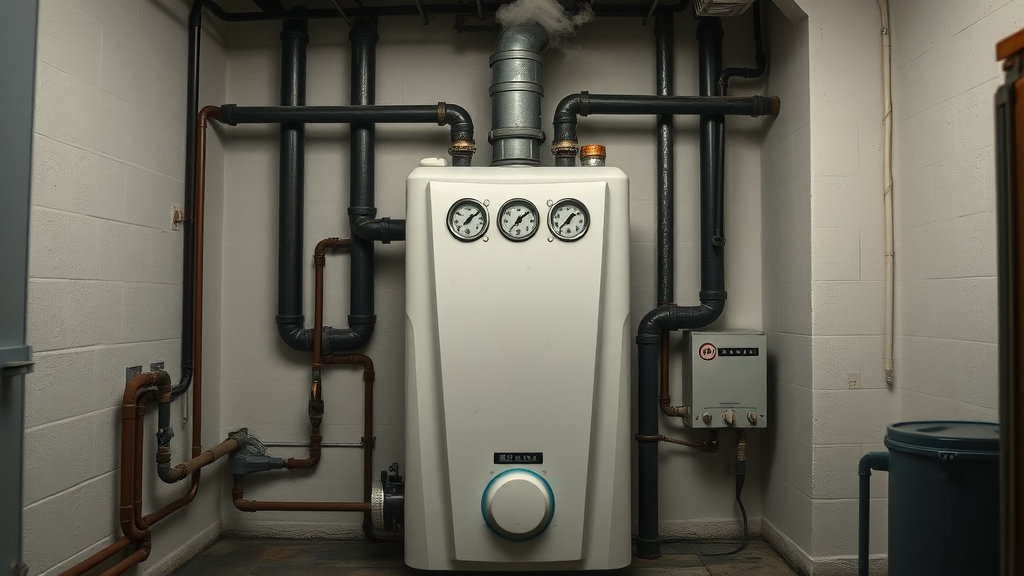
- According to industry data, lack of regular boiler maintenance is responsible for 75% of breakdowns.
- Annual preventative maintenance reduces breakdown risk by up to 50%.
- Tube boilers and hot water boilers have unique care needs to maximize cost savings.
- Most costly repairs result from ignoring a proper boiler maintenance checklist.
"Effective boiler maintenance isn’t just a cost—it's an investment in your system’s longevity and your household’s safety." - HVAC Industry Expert
Staying ahead with annual maintenance can mean the difference between a smoothly running system and expensive emergency repairs. Those who follow a regular boiler maintenance checklist not only avoid sudden breakdowns but also benefit from higher energy efficiency and lower utility bills. Whether you have a conventional hot water boiler, advanced tube boiler, or a steam boiler system, understanding these facts is the first step to safeguarding your home and wallet.
Why Boiler Maintenance Matters for Every Homeowner
Boiler maintenance isn’t optional; it’s a critical responsibility for every homeowner who relies on a hot water or steam boiler for heating. Without regular checks, your boiler operates under stress, leading to increased wear and tear, costly repair costs, and even dangerous failures like carbon monoxide leaks. By investing in annual boiler service, you maintain your boiler’s efficiency, keep your heating system running at peak performance, and protect your family’s safety throughout every season.
Homes with forced air or water boiler heating systems experience fewer emergencies when they stick to a clear maintenance schedule. The costs associated with deferred servicing—like system run failures and emergency service calls—can far outweigh the price of simple annual tune-ups. For homeowners seeking peace of mind, following a professional maintenance checklist and scheduling regular boiler service is the simplest path to consistent warmth and utility cost savings.
The Critical Role of Boiler Maintenance in Preventing Emergency Breakdowns
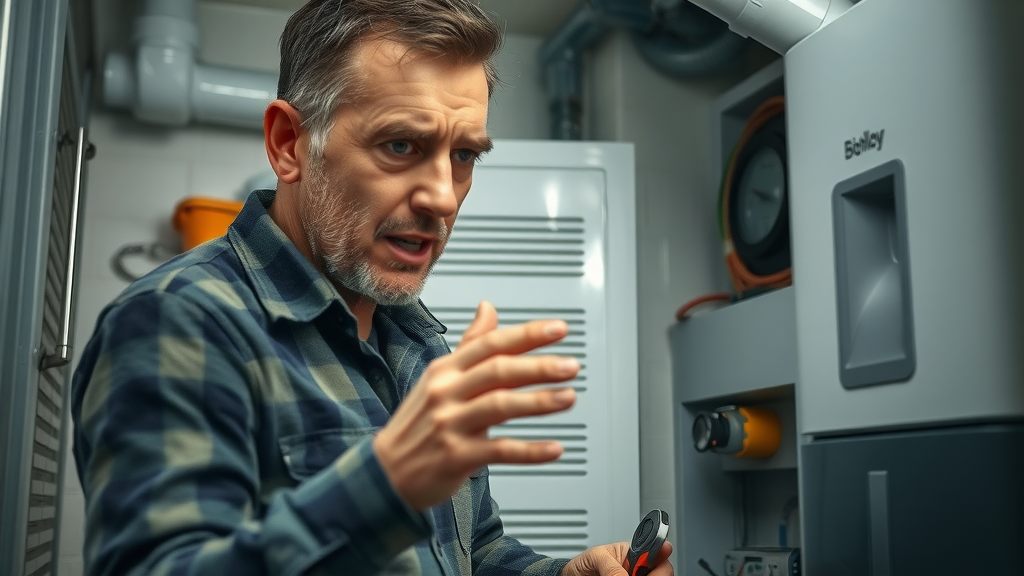
A heating system breakdown is never convenient, often striking in the coldest months when you need hot water and warmth the most. The majority of emergency repairs stem from neglecting small, preventable issues that could have been caught during routine boiler maintenance. Regular inspections and servicing keep your boiler system running smoothly, ensuring valves and safety controls function as intended.
By responding quickly to signs of wear and tear—such as unusual noises, pressure drops, or thermostat malfunctions—you prevent minor issues from escalating into catastrophic breakdowns. A comprehensive maintenance checklist, paired with timely professional intervention, is your safeguard against the stress and expense of unexpected boiler repair.
Understanding Hot Water Boiler and Water Boiler Safety
The safety of your home depends on how well you manage your hot water boiler or water boiler system. Regular boiler maintenance is crucial for preventing leaks, corrosion, and dangerous pressure build-ups. Every type of boiler, from hot water boilers to steam and tube boilers, requires careful monitoring of pressure relief valves and detection systems to avert accidents such as carbon monoxide leaks or flooding.
Adhering to a maintenance schedule not only increases the longevity of your boiler systems but also ensures compliance with building codes and warranty terms. Consistent testing of safety controls, thorough inspections, and prompt repair of damaged components are vital for operating a safe residential boiler.
Comprehensive Boiler Maintenance Explained
Boiler maintenance goes beyond a simple service visit; it’s an ongoing process involving regular inspections, system cleaning, and component testing. A solid boiler maintenance protocol covers all critical elements of your heating system—including the heat exchanger, pressure valves, and controls—to prevent unexpected failures and maximize energy efficiency.
Whether you own a hot water boiler or tube boiler, understanding the difference in maintenance requirements can help you approach each system with the proper care. Keeping up with maintenance tasks not only saves on repair costs but also extends the lifespan of your boiler system, giving you more years of reliable performance.
As you refine your approach to boiler care, it's also worth considering how your heating system impacts your home's overall environmental footprint. For those interested in making their maintenance routine more sustainable, exploring the simple ways to reduce the carbon footprint of your heating can offer additional long-term benefits for both your wallet and the planet.
Core Boiler Maintenance Procedures for Hot Water Boilers
Hot water boilers are the most common heating solution in many homes, prized for their efficiency and reliability. However, they require specific maintenance procedures to keep them in top condition. The core maintenance tasks include monitoring water pressure, checking for leaks, inspecting the heat exchanger, and ensuring the circulator pump operates smoothly. Neglecting these areas can lead to system inefficiency and potentially serious damage that demands expensive boiler repair.
Monthly visual inspections for corrosion, signs of wear, and leaks can catch issues early. It's also vital to clean filters, flush the system annually, and test all safety controls as part of your boiler maintenance checklist. Consistent care ensures your home stays comfortable and your heating system runs safely.
Tube Boilers vs. Hot Water Boilers: Maintenance Checklist Differences
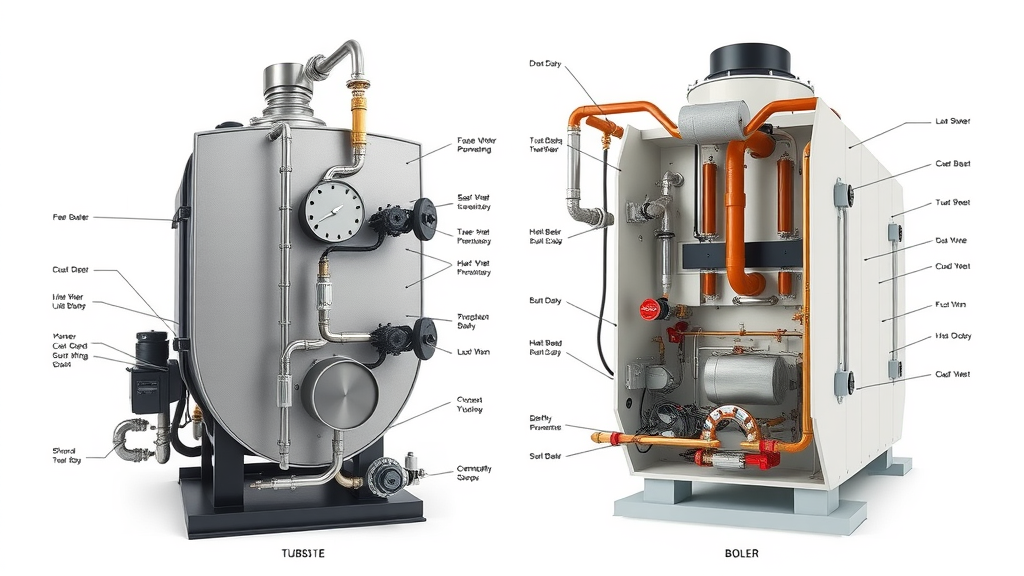
While both tube boilers and hot water boilers are crucial in residential and commercial heating, their maintenance needs are quite distinct. Tube boilers require internal tube inspections, soot removal, and more frequent monitoring for mineral scaling due to their design. Hot water boilers, in contrast, focus on checking expansion tanks, pumping efficiency, and ensuring the thermoregulator is functioning optimally.
Including tailored steps for each system in your maintenance checklist leads to improved operation and maximized cost savings. Understanding these differences helps homeowners and technicians alike create more effective preventative maintenance plans, reducing the risk of major failures and prolonging equipment lifespan.
Common Issues Uncovered During Boiler Service Visits
Professional boiler service appointments routinely uncover issues that, if left unaddressed, can cause system-wide failures. Common discoveries include leaking pipes, faulty pressure relief valves, buildup of debris or sludge, malfunctioning thermostats, and signs of internal corrosion. Each of these can reduce a heating system's performance or put your household at risk.
By scheduling annual maintenance—and quickly acting on recommendations—homeowners can avoid both minor annoyances and costly breakdowns. Proactive servicing, thorough inspections, and diligent adherence to a boiler maintenance checklist remain your strongest allies against emergency repairs.
Boiler Maintenance Checklist: Step-By-Step Guide
| Frequency | Component | Action Required |
|---|---|---|
| Monthly | Visual Inspection | Check for leaks, corrosion, unusual noises, and verify water pressure. |
| Quarterly | Pressure Readings | Ensure pressure is within optimal range for your boiler type. |
| Annually | Heat Exchanger | Clean thoroughly and inspect for wear or scaling. |
| Annually | Safety Valves | Test all safety valves and controls for proper function. |
| Annually | Check for Leaks | Review all connections, pipes, and seals for signs of leakage. |
| Annually | Flush System | Remove sediment from the boiler and radiators as necessary. |
- Inspect safety valves
- Check pressure readings
- Test water levels
- Clean heat exchanger
- Inspect for leaks
Utilize this step-by-step boiler maintenance checklist to track each essential maintenance task. Establishing a routine that covers both frequent visual inspections and more detailed annual tasks helps keep your heating system running smoothly. This practice also supports energy efficiency and reduces emergency service calls.
Annual Maintenance Tasks You Can’t Afford to Skip
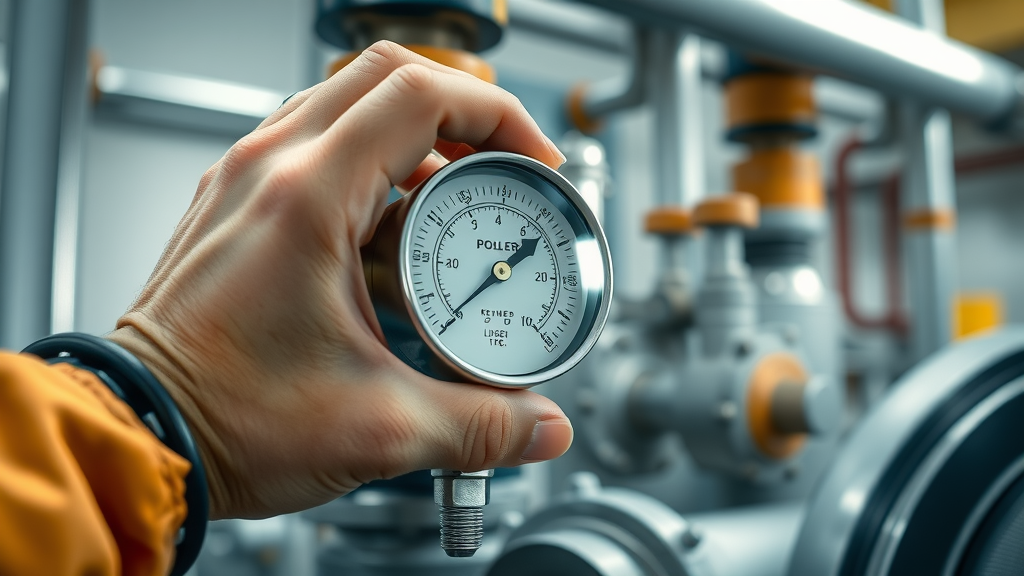
Annual maintenance is the cornerstone of lasting boiler performance and cost savings. During this comprehensive checkup, a certified technician will test safety valves, flush the system, clean the heat exchanger, and meticulously check for signs of corrosion or mineral buildup. By catching issues early, you avoid costly repairs and keep your hot water or tube boiler at peak efficiency.
Homeowners who neglect annual maintenance risk invalidating warranties, facing higher energy bills, and encountering sudden system failures that can lead to water or steam damage. Investing in a thorough yearly service ensures your boiler system operates safely and provides uninterrupted comfort throughout even the coldest months.
Preventative Maintenance: The Secret to Cost Savings and System Longevity
Preventative maintenance is more than just a checklist item—it's the most reliable path to cost savings and the long-term success of your heating system. By regularly inspecting, cleaning, and tuning your boiler, you prevent the buildup of wear and tear that leads to unexpected breakdowns. Consistent attention helps your heating system run more efficiently, saving money on fuel and reducing the likelihood of expensive emergency repairs.
Every type of boiler, from water boiler to tube boilers, benefits from routine attention. The more proactive your approach, the fewer emergencies you'll encounter and the better your cost savings over time.
Proactive Maintenance Versus Reactive Repairs: Cost Comparison
"Preventative maintenance is not a luxury—it’s a necessity that pays for itself through avoided repairs and energy savings."
| Service Type | Average Cost | Frequency | Outcome |
|---|---|---|---|
| Annual Preventative Maintenance | $100 - $250 | Once per year | Higher efficiency, fewer breakdowns, extended system life |
| Minor Boiler Repair | $150 - $350 | As Needed | Fix specific issue, possible recurrence if maintenance is lacking |
| Emergency Major Repair | $500 - $2,000+ | Unpredictable | High repair costs, increased downtime, risk of additional damage |
| Boiler Replacement | $3,500 - $8,000+ | 10-15 years | Major investment, avoidable with proper care |
Scheduling boiler service before trouble strikes always results in lower total repair costs over the life of your heating system. Investing in an annual maintenance plan keeps your system running and lets you budget confidently—without fear of unexpected, wallet-busting surprises.
Expert Boiler Service: When and Why to Call a Professional
Even the most handy homeowner should recognize when it's time to step back and let a certified boiler service technician take over. Boilers are sophisticated, critical appliances that involve water, pressure, and, in some cases, combustion—making safety and expertise vital. Relying on a professional for annual inspections, deep cleaning, and troubleshooting guarantees long-term performance, protects your warranty, and keeps your heating system safe and reliable.
Boiler Service Schedule: How Often Should Your Boiler Maintenance Happen?
Most experts recommend annual boiler maintenance for all residential home boiler systems and commercial models alike. This yearly appointment ensures pressure valves, heat exchangers, and critical safety features are reviewed by a professional. For older units or those under heavy usage, twice-a-year checks may be warranted. Keep track of your maintenance schedule—setting reminders ensures you never overlook these vital visits.
Signs You Need Immediate Boiler Maintenance Service

Don't ignore the warning signals from your boiler system. If you notice inconsistent heating, strange noises (like banging or whistling), unusual smells, water leaks, error codes, or sudden drops in hot water production, it's time to call for boiler service right away. Any sign of increased wear and tear should prompt a prompt, professional inspection—delaying can greatly increase repair costs and risk.
Questions to Ask When Booking Boiler Service Appointments
Before you schedule a boiler maintenance visit, ask the technician if they're licensed and insured, what’s included in the service call, and if they have experience with your specific type of boiler. Request a clear explanation of costs, inquire about warranty maintenance, and ask for recommendations about your system's future performance or upgrades to boost energy efficiency.
A good boiler service provider will explain all findings, describe each maintenance task performed, and leave you with a detailed maintenance checklist for your records.
DIY Boiler Maintenance: What You Can Do (And What You Shouldn’t)
While some aspects of boiler maintenance can be safely handled at home, many tasks require professional expertise due to the complexity and safety risks involved. By understanding where your role as a homeowner ends—and where a professional's begins—you can take a balanced, proactive approach to system care without jeopardizing your home or safety.
Safe At-Home Boiler Maintenance for Hot Water Boilers
There are several basic upkeep steps homeowners can safely perform to maintain their hot water boiler’s efficiency. Monthly visual inspections for leaks, corrosion, or odd noises are essential. Bleeding radiators to remove air is a simple process that can boost heating system performance dramatically. Additionally, verifying that your thermostat and timer are operating correctly keeps your system running smoothly.
- Visual inspection
- Bleeding radiators
- Checking thermostat function
Tasks Only Certified Boiler Service Technicians Should Handle
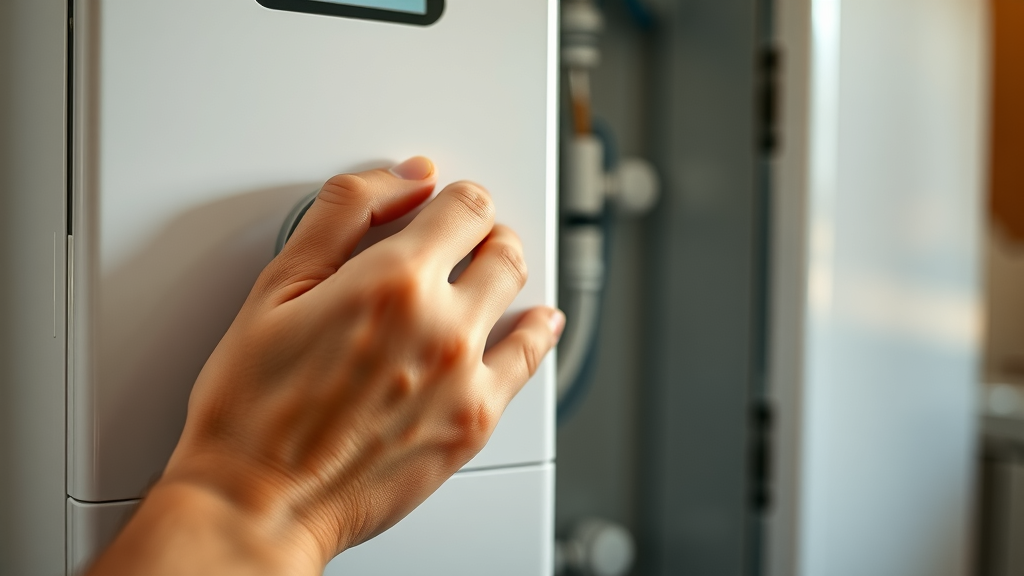
No matter how confident you are, certain maintenance tasks require the training and tools of a certified technician. These include opening the unit, inspecting internal components, testing safety valves, flushing and treating the system water, making gas or electrical repairs, and resetting system controls. Attempting these jobs yourself can invalidate your warranty, cause further damage, or even result in dangerous carbon monoxide exposure. Let the experts handle the complex work, and use your maintenance checklist to oversee routine visual inspections instead.
Balancing basic at-home boiler care with expert-level professional attention forms the most reliable boiler maintenance schedule possible. Together, these efforts keep your boiler system running efficiently and safely.
Boiler Maintenance Cost Breakdown and Cost Savings Opportunities
Understanding the true costs behind annual boiler maintenance helps you make smart, strategic decisions about your heating system. While upfront expenses might feel significant, regular care is proven to generate major cost savings by preventing repairs, extracting greater energy efficiency, and extending the system’s operational lifespan.
Typical Boiler Maintenance Cost Ranges
The cost of regular boiler maintenance varies by region, boiler type, and service provider. Most homeowners can expect to spend between $75 and $300 for annual residential boiler maintenance. Commercial systems or older units requiring extensive repair may incur higher fees. However, budget-friendly preventative plans are available from many HVAC companies, ensuring reliable service at a predictable cost.
Factors That Influence Boiler Maintenance Costs
Several elements affect your maintenance costs—including the age of your boiler system, availability of parts, system complexity, local labor rates, and whether you own a water, steam, or tube boiler. Regular service reduces the risk of high repair bills by identifying small issues before they escalate, and by keeping your heating system running efficiently.
Strategies for Maximizing Cost Savings Through Regular Maintenance
| Service Type | Annual Cost | Potential Savings |
|---|---|---|
| Annual Maintenance | $100 - $250 | Reduces emergency repair and replacement costs by up to 50% |
| Emergency Repair | $500 - $2,000 | Avoidable with regular maintenance |
| System Replacement | $4,000 - $8,000+ | Postponed with diligent care and maintenance |
Sticking to a regular boiler service schedule and following your maintenance checklist are the best ways to realize cost savings. Proactive attention to your hot water or tube boiler keeps your system running and ensures you only spend money on necessary, routine care instead of expensive, emergency fixes.
People Also Ask About Boiler Maintenance
What maintenance is required for a boiler?
- Inspect and clean the flue
- Test controls and safety devices
- Check for leaks, corrosion
- Flush the system if necessary
A thorough boiler maintenance routine includes cleaning the flue, checking safety devices, visually inspecting for leaks or rust, and flushing the system when needed. These steps are essential for keeping any hot water or steam boiler safe and efficient.
How often should a boiler be serviced?
- Most experts recommend annual boiler maintenance checks—it keeps your warranty valid and your system running efficiently.
Yearly service is essential for any residential boiler system. Sticking to an annual maintenance schedule ensures sustained performance, lowers repair costs, and maintains manufacturer warranty compliance for peace of mind.
Can I service my boiler myself?
- Homeowners can perform monthly visual inspections and basic upkeep, but only certified professionals should conduct in-depth boiler service.
You can conduct simple maintenance tasks, like visual inspections and thermostat checks, but deeper servicing—especially for internal components—should always be left to certified technicians. Their expertise ensures the job’s done safely and thoroughly.
How much should boiler maintenance cost?
- Costs usually range from $75-$300 annually depending on boiler type, age, and region.
Expect to spend approximately $75 to $300 each year on standard residential boiler maintenance. The actual price can vary based on your location, boiler style (hot water, steam, or tube boiler), and system age.
Frequently Asked Questions: Boiler Maintenance
- What is included in an annual boiler maintenance checklist?
An annual boiler service typically includes inspecting and cleaning the heat exchanger, testing safety valves, checking pressure, inspecting the flue, and ensuring all controls operate properly. - How does preventative maintenance affect boiler lifespan?
Routine preventative maintenance will extend your boiler's lifespan, maximizing cost savings and keeping your heating system reliable year after year. - What happens if I skip boiler maintenance?
Skipping maintenance can result in costly breakdowns, higher energy bills, safety hazards like leaks or carbon monoxide, and could void your boiler’s warranty. - Is hot water boiler maintenance different from steam boiler care?
Yes, while both require similar safety checks, steam boilers need extra attention to water levels and pressure, while hot water boilers focus more on circulating pumps and expansion tanks.
Final Thoughts: Protecting Your Investment with Routine Boiler Maintenance
- Consistently following your maintenance checklist prevents breakdowns
- Professional boiler service is a proactive approach for cost savings
- Keeping your hot water and tube boilers maintained ensures safe, efficient heating
"Ultimately, routine boiler maintenance is about more than saving money—it's about peace of mind."
Follow your boiler maintenance plan, keep your home warm, and enjoy reliable cost savings all year long.
If you’re ready to take your home’s efficiency and comfort to the next level, consider how your plumbing and heating choices can shape a more sustainable future. Discover the latest trends in sustainable plumbing to complement your boiler maintenance efforts. By staying informed about innovative solutions and eco-friendly upgrades, you can further reduce costs, enhance system performance, and contribute to a greener home environment. Let your commitment to regular maintenance be the foundation for smarter, more sustainable living.
Ready to Start Your Boiler Maintenance Routine?
- Download our comprehensive boiler maintenance checklist
- Book your professional boiler service today to avoid costly breakdowns
- Maximize cost savings and efficiency with regular preventative maintenance
Key Takeaways to Ensure Boiler Maintenance Success
- Schedule annual maintenance
- Follow a step-by-step checklist
- Know the signs your boiler needs attention
- Invest in professional boiler service for peace of mind
Sources
- U.S. Department of Energy – https://energy.gov/energysaver/maintaining-your-boiler
- ASHRAE – https://www.ashrae.org
- HVAC.com – https://www.hvac.com
- Energy Trust of Oregon – https://www.energytrust.org
- HomeAdvisor – https://www.homeadvisor.com/cost/heating-and-cooling/boiler-service/
Regular boiler maintenance is crucial to ensure efficient operation, extend the lifespan of your heating system, and prevent costly breakdowns. By adhering to a comprehensive maintenance routine, you can safeguard your investment and maintain a comfortable home environment.
Key Boiler Maintenance Tips:
-
Regular Visual Inspections: Conduct monthly checks for leaks, corrosion, and unusual noises. Early detection of these issues can prevent more significant problems down the line. ( airprosutah.com )
-
Monitor Pressure Levels: Ensure the boiler’s pressure gauge reads within the manufacturer’s recommended range, typically between 1 and 1.5 bars. Incorrect pressure can lead to inefficiency or system damage. ( hvac.com )
-
Bleed Radiators: Eliminate trapped air in radiators to maintain consistent heating and improve system efficiency. This process should be performed at the start of the heating season and as needed. ( angi.com )
-
Inspect and Clean Components: Regularly clean the heat exchanger and burner to prevent soot and debris buildup, which can hinder efficiency. Inspect all components for signs of wear and tear. ( lifetimehomeservices.com )
-
Check for Leaks and Corrosion: Examine the boiler and surrounding pipes for any signs of leaks or corrosion. Addressing these issues promptly can prevent further damage and maintain system integrity. ( airprosutah.com )
-
Test Safety Devices: Regularly test safety controls and mechanisms, such as pressure relief valves and temperature controls, to ensure they function correctly. This is vital for safe boiler operation. ( myqualitycomfort.com )
-
Schedule Professional Maintenance: Arrange for annual inspections by a qualified technician to perform comprehensive checks and servicing. Professional maintenance can identify and rectify issues that may not be apparent during routine homeowner inspections. ( myqualitycomfort.com )
By implementing these maintenance practices, you can enhance your boiler’s performance, ensure safety, and avoid unexpected repair costs.
 Add Row
Add Row  Add
Add 



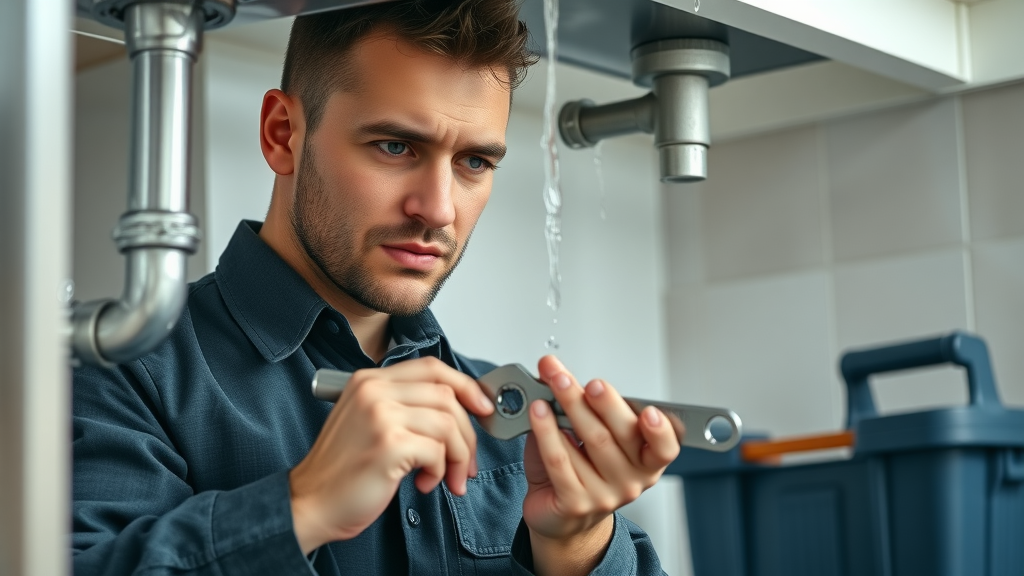
Write A Comment